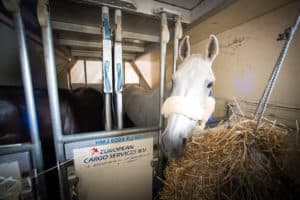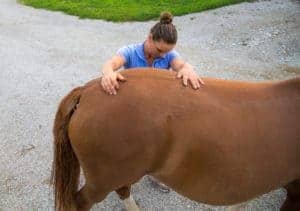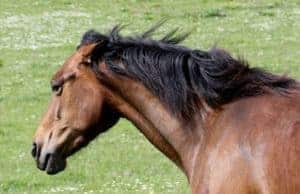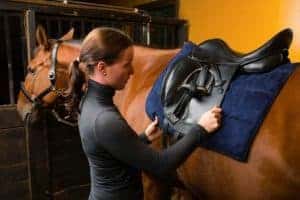
Cushing’s and EMS: What’s the Difference?
Practitioners must use clinical signs and laboratory testing to distinguish between these sometimes similar ailments.


Practitioners must use clinical signs and laboratory testing to distinguish between these sometimes similar ailments.

Horse owners might want to have their mares’ ovaries surgically removed for a variety of reasons, including to prevent pregnancy, get rid of tumors, or, most commonly, resolve behavioral issues.

Whether they’re trapped, cast, or dead, down horses can be both difficult and dangerous to move. Here’s how to stay safe.

Horses with myositis experience rapid, widespread gluteal and epaxial muscle atrophy. Here’s what veterinarians know about about this immune-mediated condition.

Draft horses, horses from the Midwest, and those used for farming and ranching or breeding are most at-risk of contracting coronavirus, researchers found.

While removing mares’ ovaries can be successful in remedying aggressive behavior, other estrous behaviors can persist even following surgery.

A reproductive specialist describes techniques to help clinicians overcome common challenges in embryo recovery and recipient mare management.

Vets should perform a careful assessment of a mare’s hormonal status to determine whether there’s a definitive, repeatable relationship between it and her undesirable behavior.

Researchers determined that SAA is a more reliable indicator of inflammation than rectal temperature in traveling horses.

Instead of causing foot pain directly, rear hoof imbalances seem to cause more problems higher up the leg—to the hocks, stifles, glutes, and sacroiliac joint, one vet says.

Applying learning theory principles in equine veterinary practice can improve safety and horse welfare, as well as client satisfaction. Here’s what to know.

Knowing which ovarian abnormalities are benign and which are pathogenic can help vets manage mare successfully.

Here’s how vets can carry out five common mildly aversive procedures using learning science and behavior modification techniques.

Removing the ovaries won’t fix other issues, from static shock to bladder adhesions, that can make mares behave badly.

Vets discussed kissing spines, memory foam, English and Western saddle fit, rider weight, rein lameness, and more.

Ejaculate with less than 20% urine contamination might be suitable for freezing without centrifugation.
Stay on top of the most recent Horse Health news with